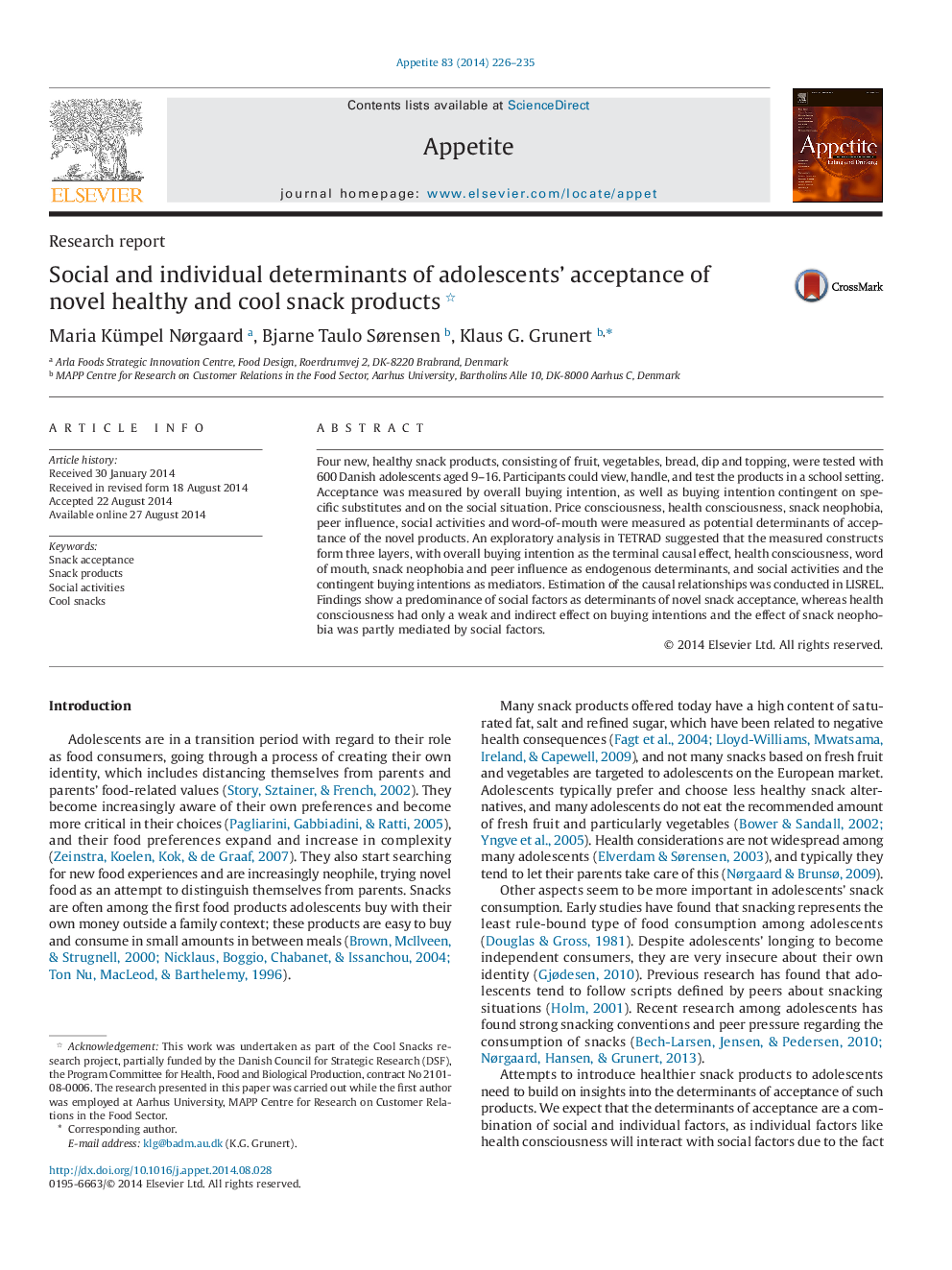| Article ID | Journal | Published Year | Pages | File Type |
|---|---|---|---|---|
| 7309755 | Appetite | 2014 | 10 Pages |
Abstract
Four new, healthy snack products, consisting of fruit, vegetables, bread, dip and topping, were tested with 600 Danish adolescents aged 9-16. Participants could view, handle, and test the products in a school setting. Acceptance was measured by overall buying intention, as well as buying intention contingent on specific substitutes and on the social situation. Price consciousness, health consciousness, snack neophobia, peer influence, social activities and word-of-mouth were measured as potential determinants of acceptance of the novel products. An exploratory analysis in TETRAD suggested that the measured constructs form three layers, with overall buying intention as the terminal causal effect, health consciousness, word of mouth, snack neophobia and peer influence as endogenous determinants, and social activities and the contingent buying intentions as mediators. Estimation of the causal relationships was conducted in LISREL. Findings show a predominance of social factors as determinants of novel snack acceptance, whereas health consciousness had only a weak and indirect effect on buying intentions and the effect of snack neophobia was partly mediated by social factors.
Keywords
Related Topics
Life Sciences
Agricultural and Biological Sciences
Food Science
Authors
Maria Kümpel Nørgaard, Bjarne Taulo Sørensen, Klaus G. Grunert,
